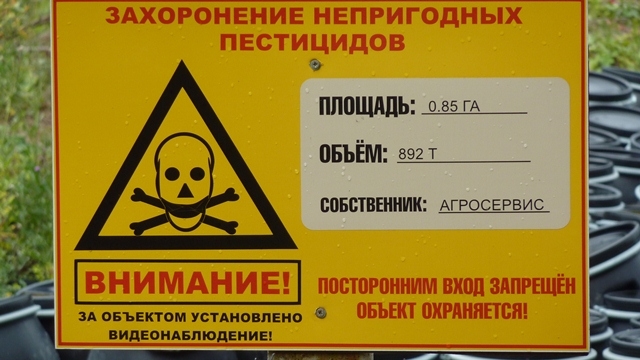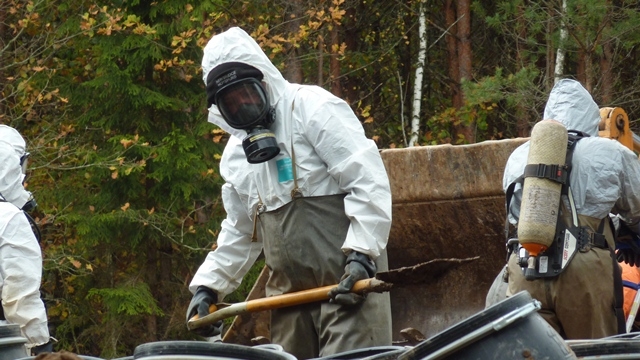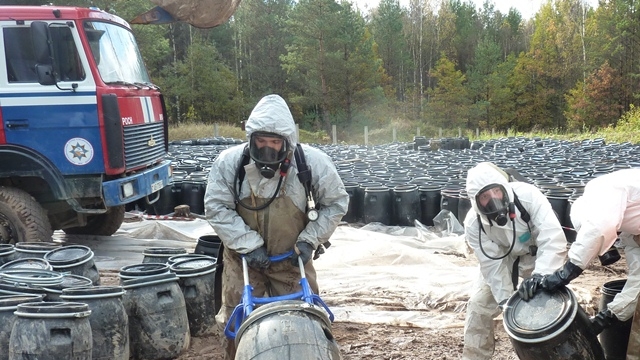Challenge
Belarus never produced POPs and discontinued their import and use in the 1980s, but thousands of tons were used and stored in the country until that time. The country’s commitment to POPs elimination was sealed through its accession to the Stockholm Convention. The project’s overall risks were considered to be substantial, given that it involved securing, relocating, transporting, and disposing of hazardous wastes and other dangerous substances.
In addition, during the excavation at the Slonim stockpile site, more POPs waste that needed to be handled and destroyed was discovered, with evidence of further contamination of the surrounding soil by other obsolete pesticides due to a rupture of the containers and a pesticide leak from the cell that had been buried nearly 40 years ago. The recovered POPs waste was 700 tons more than estimated, and still more remained. In the end, project funds were not sufficient to destroy all the excess material.




